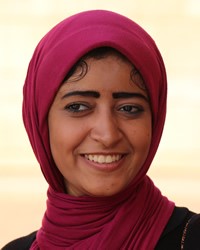Arab, Egyptian general in Türkiye (Turkey)

Photo Source:
Terry Feuerborn - Flickr
Creative Commons
|
Send Joshua Project a map of this people group.
|
| People Name: | Arab, Egyptian general |
| Country: | Türkiye (Turkey) |
| 10/40 Window: | Yes |
| Population: | 28,000 |
| World Population: | 73,595,300 |
| Primary Language: | Arabic, Egyptian |
| Primary Religion: | Islam |
| Christian Adherents: | 13.00 % |
| Evangelicals: | 4.00 % |
| Scripture: | Complete Bible |
| Ministry Resources: | Yes |
| Jesus Film: | Yes |
| Audio Recordings: | Yes |
| People Cluster: | Egyptian |
| Affinity Bloc: | Arab World |
| Progress Level: |
|
Introduction / History
Ancient Egypt was one of the world's great civilizations. Dynasties of pharaohs ruled Egypt from 3200 B.C. to 341 B.C. Egypt fell to the Persian Arab Muslim conquest in 640 A.D. Arabs, who introduced Islam and the Arabic language to Egypt in the seventh century, ruled for the next six centuries. Ottoman Turks conquered the country in 1517.
After the completion of the Suez Canal in 1869, Egypt became an important transportation hub, but fell heavily into debt. To protect its investments, Britain seized control of Egypt from 1882 until 1914. They granted full sovereignty to Egypt after World War II. It was after WWII when Egyptians began to migrate to other countries.
Egypt is the most rapidly growing country in the Arab world, and with limited arable land, resources are overtaxed, and society is stressed. For that reason, there is a large Egyptian diaspora that has migrated to other parts of the world. Though it is far more common for Egyptians to move to Arabic speaking countries or to Europe, some are now in Cyprus or Turkey. They often hope to eventually move from Turkey to a prosperous Western nation. Those who live in Turkey are usually in Ankara or Istanbul.
What Are Their Lives Like?
Egyptians are moving to Turkey to attend universities. Many hold professional positions in the tourist industry or in medicine. There is a lot of trade between Turkey and Egypt. Egyptians are good customers for urban real estate in Turkey. The Turkish government is granting citizenship to exiled Egyptians with money. Egyptians find Ankara to be a pleasant and almost familiar city with Egyptian restaurants and schools. They share Sunni Muslim mosques with the Turkish majority.
What Are Their Beliefs?
Islam became the state religion of Egypt in 1980. The majority of Egyptian Arabs are either Shafi, Maliki or Hanafi Sunni Muslim. Most Egyptians in Turkey remain Sunni Muslim, though there is a Coptic Christian minority.
Copts brought Christianity to Egypt very early, where it remained for 1,000 years as the primary religion. Even today, the great majority of the Christian population are still members of the Coptic Church. Evangelical Christians are a small percentage.
What Are Their Needs?
Many have experienced poverty in Egypt, which has prompted migration, and placed them at greater risk of exploitation.
Those who follow Christ must have love and boldness to be a witness to other Egyptians. With a growing missionary vision, the Egyptian Church has the potential to reach both fellow Egyptians and Arabic speaking people groups in other countries for Christ. The Church is limited by lack of training opportunities, experience and funds. If additional resources are provided, church planters are willing to go.
Prayer Points
Pray that Egyptian Christ followers would become a mighty missionary movement for the Lord in Turkey.
Pray for Egyptian Arabs to have spiritual hunger and a discernment that will lead them to the cross and the empty grave.
Pray for Egyptian Arab Christians to put their faith in the Risen Christ rather any religious institution.